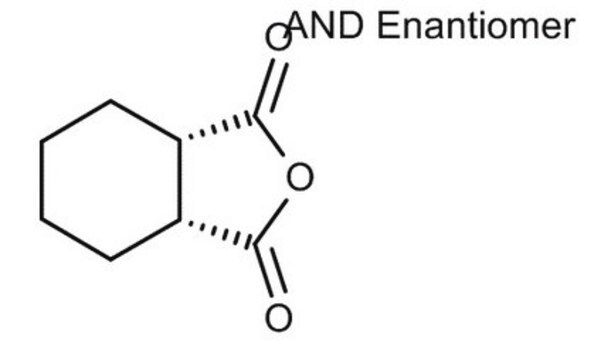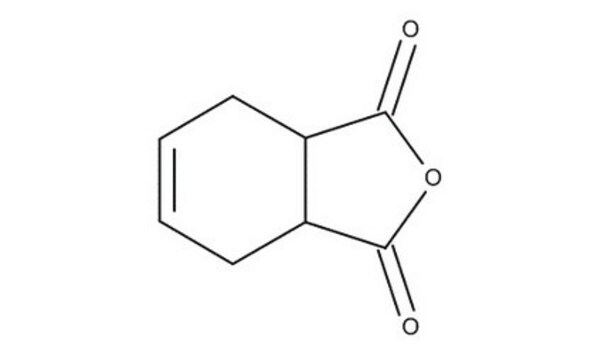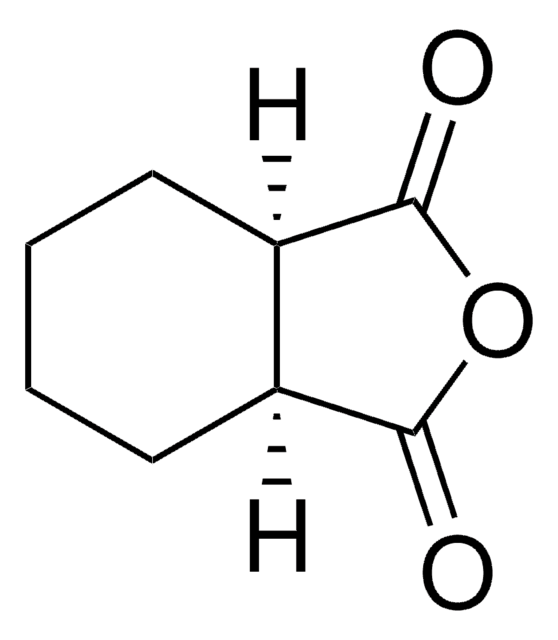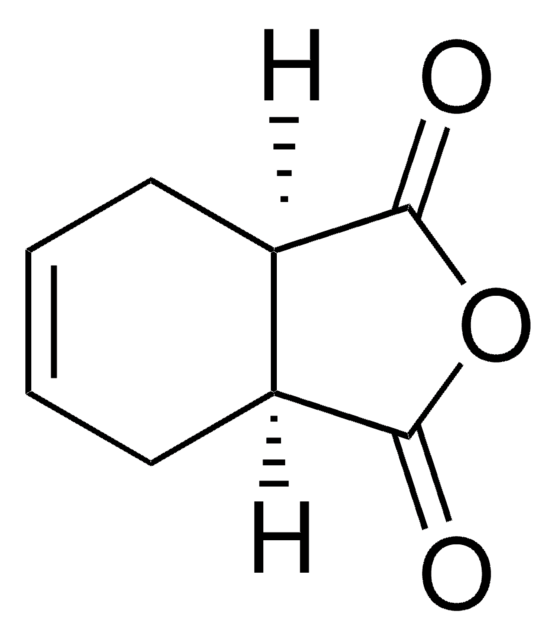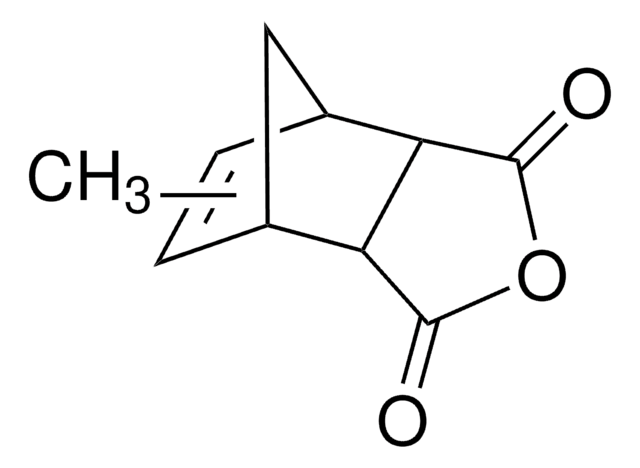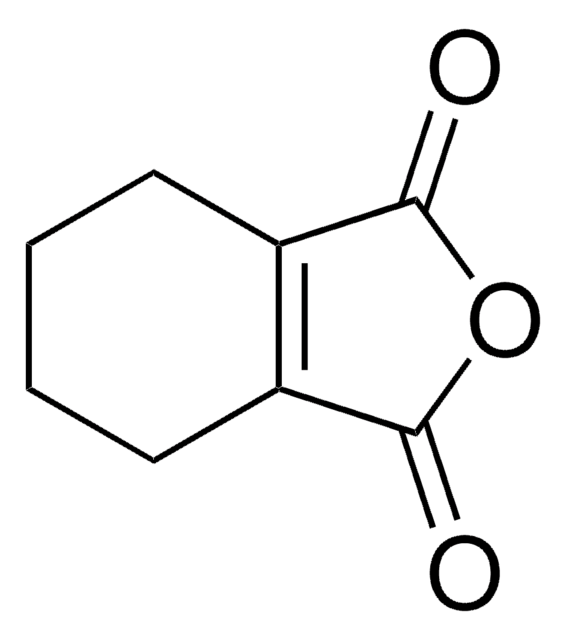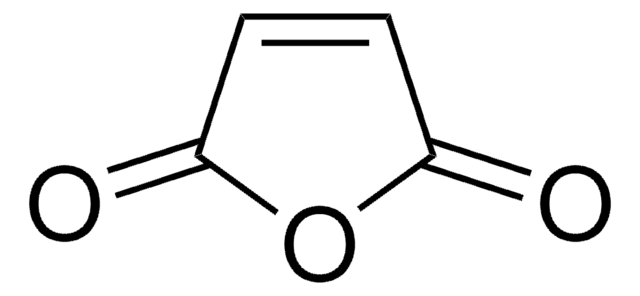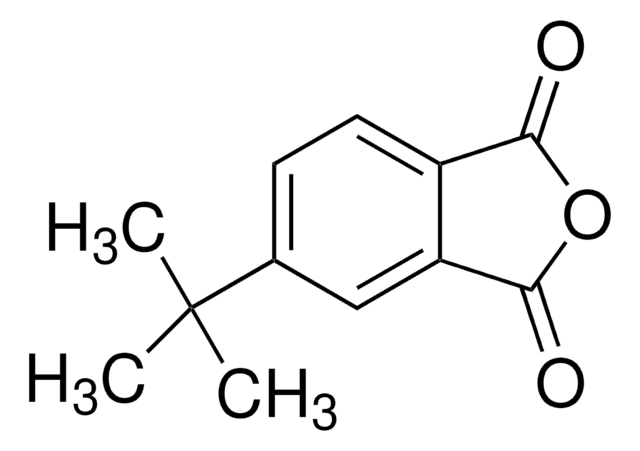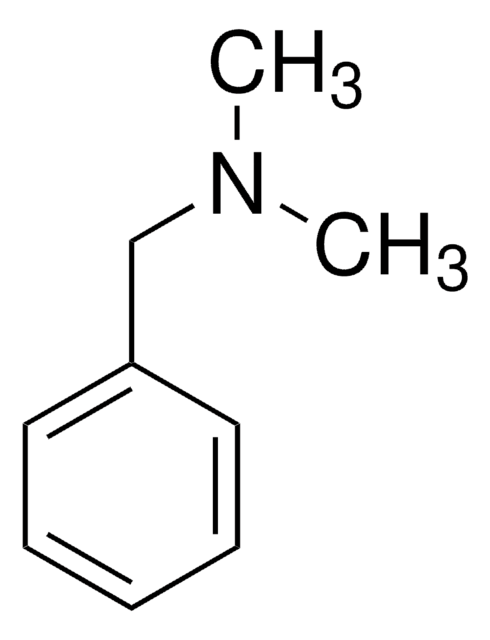추천 제품
Quality Level
분석
96%
refractive index
n20/D 1.477 (lit.)
density
1.162 g/mL at 25 °C (lit.)
SMILES string
CC1CCC2C(C1)C(=O)OC2=O
InChI
1S/C9H12O3/c1-5-2-3-6-7(4-5)9(11)12-8(6)10/h5-7H,2-4H2,1H3
InChI key
FKBMTBAXDISZGN-UHFFFAOYSA-N
유사한 제품을 찾으십니까? 방문 제품 비교 안내
애플리케이션
- Limonene-based epoxy: Anhydride thermoset reaction study: This research explores the thermosetting reactions of limonene-based epoxy using hexahydro-4-methylphthalic anhydride, illustrating its application in creating environmentally friendly polymers (Couture et al., 2018).
- Metallocene catalysts for the ring-opening co-polymerisation of epoxides and cyclic anhydrides: Discusses the application of metallocene catalysts in ring-opening copolymerization involving hexahydro-4-methylphthalic anhydride, relevant for developing new polymeric materials (Shaw et al., 2022).
- Evaluation of Natural and Modified Castor Oil Incorporation on the Melt Processing and Physico-Chemical Properties of Polylactic Acid: Explores the use of natural oils modified with hexahydro-4-methylphthalic anhydride to enhance the properties of polylactic acid, a study significant in biodegradable plastics (Darie-Niță et al., 2022).
- Synthesis, characterization, and recycling of bio-derivable polyester covalently adaptable networks for industrial composite applications: Investigates the use of hexahydro-4-methylphthalic anhydride in creating adaptable networks for industrial applications, enhancing the sustainability of materials (Wang et al., 2024).
- Epoxidized linseed oils based networks. Case of thermal degradation: Discusses the thermal degradation of networks made from linseed oils cross-linked with hexahydro-4-methylphthalic anhydride, which is pivotal in understanding the stability and life span of bio-based polymers (Richaud et al., 2019).
신호어
Danger
유해 및 위험 성명서
Hazard Classifications
Eye Dam. 1 - Resp. Sens. 1 - Skin Sens. 1
Storage Class Code
10 - Combustible liquids
WGK
WGK 1
Flash Point (°F)
235.4 °F - closed cup
Flash Point (°C)
113 °C - closed cup
개인 보호 장비
Eyeshields, Faceshields, Gloves, type ABEK (EN14387) respirator filter
이미 열람한 고객
Monica H Kristiansson et al.
Chemical research in toxicology, 15(4), 562-569 (2002-04-16)
Primary structural information of anhydride binding to endogenous proteins is of interest in order to determine the mechanism causing the type-I allergy seen in many anhydride-exposed workers. In addition, studies on specific protein adducts may generate new methods for biological
C H Lindh et al.
Toxicology and applied pharmacology, 153(2), 152-160 (1999-01-08)
Hexahydrophthalic anhydride (HHPA) and methylhexahydrophthalic anhydride (MHHPA) are highly allergenic compounds used in the chemical industry. The aim of this study was to characterize the protein adducts in erythrocytes following exposure to HHPA and MHHPA. Blood and urine samples were
Marina C Jeppsson et al.
Inhalation toxicology, 21(12), 1013-1020 (2009-09-24)
Methylhexahydrophthalic anhydride (MHHPA) is a reactive, low molecular weight chemical used in products such as plastics, paints, and electronic components. Exposure to MHHPA may lead to work-related airway diseases such as rhinitis, conjunctivitis, and asthma. Twelve subjects employed at a
C H Lindh et al.
International archives of occupational and environmental health, 70(2), 128-132 (1997-01-01)
To investigate whether methylhexahydrophthalic acid (MHHP acid) in urine and plasma can be used as a biomarker for exposure to methylhexahydrophthalic anhydride (MHHPA). MHHPA in air was sampled by Amberlite XAD-2 and analysed by gas chromatography (GC) with flame ionisation
L Kanerva et al.
Contact dermatitis, 36(1), 34-38 (1997-01-01)
Epoxy resin compounds (ERC) include a large number of chemicals, such as epoxy resins (ER), reactive diluents and hardeners. Many hardeners, e.g., aliphatic polyamines, are well-known sensitizers. Another type of ER hardeners are the phthalic anhydrides, such as methylhexahydrophthalic anhydride
Global Trade Item Number
| SKU | GTIN |
|---|---|
| 149934-25G | 4061838110848 |
| 149934-3KG | 4061833013915 |
| 149934-500G | 4061838738523 |
자사의 과학자팀은 생명 과학, 재료 과학, 화학 합성, 크로마토그래피, 분석 및 기타 많은 영역을 포함한 모든 과학 분야에 경험이 있습니다..
고객지원팀으로 연락바랍니다.